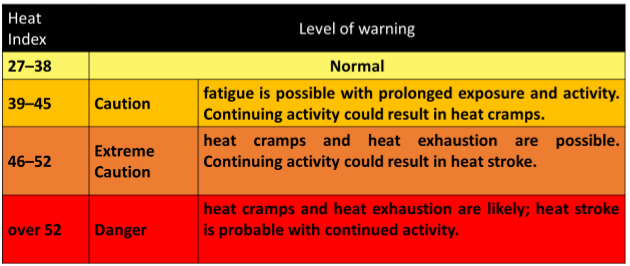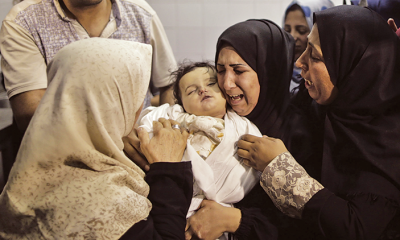News
Experts at third LKI Foreign Policy Forum call for pragmatic reassessment of non-alignment in a shifting global landscape

While the need to re-orient non-alignment to meet the changing global dynamics was regularly spoken of, Non-Aligned Movement (NAM) countries have failed to offer a cohesive strategic response and re-orientation, Lakshman Kadirgamar Institute (LKI) Executive Director Ambassador Ravinatha Aryasinha said at the third LKI Foreign Policy Forum, titled ‘Reassessing Non-Alignment in a Polarised World,’ that was held recently in Colombo.
The forum, held on a quarterly basis, brings together experts to discuss contemporary foreign policy issues and to contribute to the development of a Sri Lankan perspective on foreign policy and international relations. Ahead of the Forum, Foreign Minister M.U.M. Ali Sabry, who delivered the opening address, observed that “non-alignment means not becoming a bystander” and “that you are not forced or coerced into a camp to take sovereign decisions”.
Moderating the session which featured four prominent experts in the field, LKI Executive Director Ambassador Ravinatha Aryasinha, at the outset, emphasized the importance of understanding both – the Non-Aligned Movement (NAM) as an organization, and ‘non-alignment’ as a concept and foreign policy strategy.
He noted that for Sri Lanka, as it was to many member countries between the 1960s -1980s, NAM enabled the conceptualization/operationalization of important initiatives relevant to its membership, including the Indian Ocean Peace Zone, the Law of the Sea, a New International Economic Order, a New International Information Order and a developing country emphasis on global disarmament – many in which Sri Lanka was to play a prominent role. However, since the ending of the Cold War, non-alignment was to lose its influence in global affairs due to the diverse interests and alignments of its member states.
In recent times while the need to re-orient non-alignment to meet the changing global dynamics was regularly spoken of, NAM countries have failed to offer a cohesive strategic response and re-orientation, he observed.
Amb. Aryasinha suggested that while the voting patterns of NAM countries in the UN General Assembly during recent crises – particularly on Ukraine and the Gaza – provided an barometer to judge as to how non-aligned states were responding to issues in real-time, what the ingredients of a re-oriented non-aligned policy, however, required closer study.
The Executive Director of the Bandaranaike Centre for International Studies (BCIS) Prof. Gamini Keerawella, who focussed on the evolution of the NAM, noted that it had three distinct phases where emphasis was on; first de-colonization, second on meeting the cold war challenges, and third in grappling with post-cold war dynamics. He cautioned against analysing Sri Lanka’s foreign policy in the early period, solely through the lens of non-alignment, referring to examples such as that Prime Minister D.S Senanayake’s neutrality was complemented by a defence agreement with the UK, and Prime Minister Sirimavo Bandaranaike’s non-aligned approach with permission for U.S vessels to access Sri Lankan ports. He emphasised that the disintegration of the Soviet Union did not necessarily mean a win for the U.S, and that emerging challenges have required a re-definition of foreign policy in non-aligned nations.
He cautioned that current Sri Lanka foreign policy, too, should not be analysed solely in terms of non-alignment, but must additionally take into account; the domestic, South Asian (mainly India related), Indian Ocean Region, and global contexts, as well.
Former Foreign Secretary and Chairman of the Pathfinder Foundation Ambassador Bernard Goonetilleke referred to the emergence of multi-polarity on the international stage and the current outlook of the global economy where in the next decade, China, the U.S and India will be the three largest economies. He said countries like Sri Lanka cannot rely on the benevolence of these global economic powers and non-aligned countries must establish their own leverage for economic gain. He explained that it requires non-aligned foreign policy to be fine–tuned, and for the 120-strong Non-Aligned Movement to re-group and re-invent itself, rather than being passive.
He observed that in the case of Sri Lanka, while President Gotabaya Rajapaksa embraced neutrality and publicly declared this position at the inauguration ceremony in Anuradhapura in 2019, beyond expressing this intent, there had been limited follow up. Five years on, he argued that we must assume that Sri Lanka is continuing to pursue this position of neutrality and non-alignment. Amb. Goonetilleke highlighted how nations have shifted alliances based on their perceived self-interests without knowing the long-term consequences of such decisions. He reiterated the need for Sri Lanka to prioritise domestic interests and to ensure that a comprehensive foreign policy serves to empower the nation amidst shifting global dynamics.
Dr Paikiasothy Saravanamuttu, Executive Director of the Centre for Policy Alternatives (CPA), questioned “what non-alignment means in the modern day and what are you non-aligning against”. He challenged traditional notions of non-alignment, advocating for a more nuanced understanding in today’s geopolitical context. Rather than rigid ideological stances, he questioned whether pragmatic decision-making, such as voting based on self-interest, could be considered a form of non-alignment, citing Singapore’s foreign policy approach as a convincing example.
He also said NAM does not offer resolutions on challenges that arise from non-western interventions. As the balance of power is shifting towards China and India, Sri Lanka must assess its foreign policy based on what it can gain from engaging with the rest of the world, rather than basing it on the moral authority of non-alignment, which he argued no longer exists. Specifically regarding economic prosperity, he emphasised the need for Sri Lanka to pursue advancement through aligning with those countries that bring the greatest economic benefits, rather than sacrificing economic leverage, through adopting a non-aligned foreign policy.
Chief International Relations Analyst, Factum, Uditha Devapriya saw pragmatism as increasingly having come to define non-alignment, resulting in some contradictions and ambiguities even with respect to Sri Lanka. Observing that Sri Lanka’s foreign policy decisions omit valuable perspectives from the grassroots level, he said while southern perspectives place emphasis on engaging with bilateral partners, northern perspectives consider foreign policy to be a secondary concern behind the prioritisation of Tamil rights and recognition.
He further elaborated that the Sri Lankan people on the ground were deeply suspicious of being given aid with strings attached. He advocated for a proactive foreign policy strategy that takes consistent decisions that align with past policies, and has credibility both domestically and internationally. He urged that public opinion should influence these decisions and experts must engage more with policymakers so that decisions are sustainable and address broader challenges in the Global South.
Latest News
Heat index is likely to increase up to ‘Caution level’ at some places in Eastern, Northern and North-central provinces and in Monaragala and Kurunegala districts.

Warm Weather Advisory
Issued by the Natural Hazards Early Warning Centre of the Department of Meteorology at 3.30 p.m. 04 May 2025, valid for 05 May 2025.
The public are warned that the Heat index, the temperature felt on human body is likely to increase up to ‘Caution level’ at some places in Eastern, Northern and North-central provinces and in Monaragala and Kurunegala districts.
The Heat Index Forecast is calculated by using relative humidity and maximum temperature and this is the condition that is felt on your body. This is not the forecast of maximum temperature. It is generated by the Department of Meteorology for the next day period and prepared by using global numerical weather prediction model data.

Effect of the heat index on human body is mentioned in the above table and it is prepared on the advice of the Ministry of Health and Indigenous Medical Services.
ACTION REQUIRED
Job sites: Stay hydrated and takes breaks in the shade as often as possible.
Indoors: Check up on the elderly and the sick.
Vehicles: Never leave children unattended.
Outdoors: Limit strenuous outdoor activities, find shade and stay hydrated.
Dress: Wear lightweight and white or light-colored clothing.
Note:
In addition, please refer to advisories issued by the Disaster Preparedness & Response Division, Ministry of Health in this regard as well. For further clarifications please contact 011-7446491.
News
Fund issues may leave counting centres without back-up power tomorrow: GNs’ trade union

“Power failures on election day could occur due to natural causes or sabotage”
Funds allocated for hiring power generators for the counting centres were inadequate, and the Grama Niladaris (GNs) would not be able to ensure a back-up power supply to those places, President of the Sri Lanka United Grama Niladhari Association, Nandana Ranasinghe warned yesterday.
Addressing a press conference, Ranasinghe said: “Under these circumstances, it will not be possible to provide the counting centres with generators. Funds must also be allocated for hiring electric bulbs, cables and transporting generators as well.
“Unless funds are made available immediately, the GNs must not be held responsible if something goes wrong in the event of a power failure, either due to natural causes or sabotage. The GNs must not be asked to bear the cost of supplying back-up power to counting centres.
“In some areas, the District Returning Officers are pressuring the GNs to bear the cost of hiring power generators. The GNs must not be forced to spend their personal funds to provide facilities to counting centres.
“If a power outage occurs, it will definitely cause issues at counting centres. In the event of disruptions to the vote counting process, the results in the polling divisions under the centres may have to be annulled.”
News
LG polls: More than 65,000 cops and 8,500 military personnel deployed

More than 65,000 police officers would be deployed for the 06 May local government (LG) elections from today (05), Police Media Spokesman SSP Buddhika Manatunga told The Island, yesterday. The police personnel will include members of the Police Special Task Force, intelligence units, security divisions, and mobile patrol teams.
Army Media Spokesman Brigadier Varuna Gamage told The Island that 8,500 military personnel would be deployed on the roads across the country in view of the LG elections.
He said the Army would coordinate with the police, and that troops in all military camps had been placed on standby to face any situation.
By Norman Palihawadane and Chaminda Silva
-

 News7 days ago
News7 days agoJapan-funded anti-corruption project launched again
-

 News7 days ago
News7 days agoSethmi Premadasa youngest Sri Lankan to perform at world-renowned Musikverein in Vienna
-

 Sports6 days ago
Sports6 days agoOTRFU Beach Tag Rugby Carnival on 24th May at Port City Colombo
-

 News4 days ago
News4 days agoRanil’s Chief Security Officer transferred to KKS
-

 Business7 days ago
Business7 days agoNational Savings Bank appoints Ajith Akmeemana,Chief Financial Officer
-

 Opinion2 days ago
Opinion2 days agoRemembering Dr. Samuel Mathew: A Heart that Healed Countless Lives
-

 Features5 days ago
Features5 days agoThe Broken Promise of the Lankan Cinema: Asoka & Swarna’s Thrilling-Melodrama – Part IV
-

 Features6 days ago
Features6 days agoTrump tariffs and their effect on world trade and economy with particular














